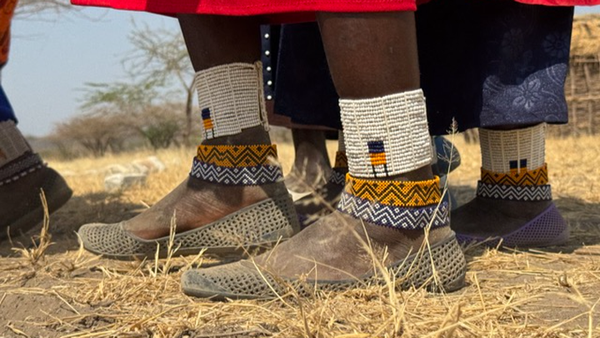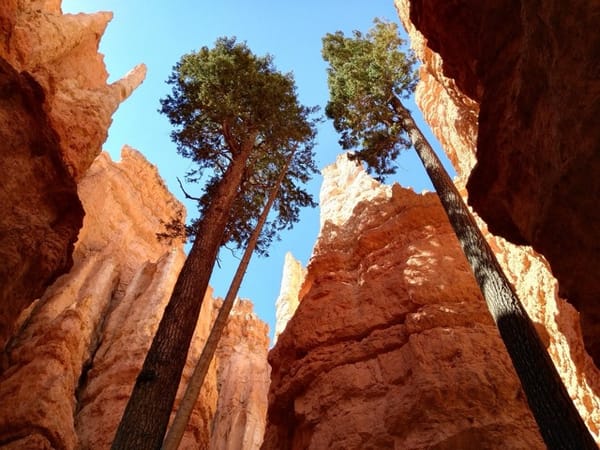Inaccessibility Crushes Community Pride For Disabled People
We are here, we are queer and we are proud. And we deserve accessibility.

Another Pride has come and gone. My favourite month of the year sees queer people around the world rejoicing and protesting to celebrate our existence. We are here, we are queer and we are proud.
Unfortunately, disabled LGBTQ+ people continue to be left out of community spaces and events. Although approximately a third of LGBTQ+ people have a disability, when it comes to queer community events, accessibility is often an afterthought.
And, it crushes the LGBTQ+ community spirit.
Our little sub-community is excluded from queer spaces in a range of ways, like at Pride parades that neglect to provide enough disabled toilets or offer quiet spaces for neurodivergent people. Many queer clubs have inaccessible entrances, don't offer a disabled toilet or use it as a storage room instead.
Inaccessibility was evident throughout remote Pride in 2020, particularly with a lack of sign language interpreters or captions made available for online events. Sadly, this trend has continued in the years since, and many Pride events returned to their old inaccessible ways.
These exclusionary actions are rarely deliberate but that does not negate their impact. Few people are actively saying “we do not want disabled people here”, yet the message sounds the same when accessibility is treated as optional or forgotten entirely.
The psychological impact is significant. Disabled people are left living life on the sidelines and, in some cases, we exclude ourselves deliberately to avoid the distress of arriving at an event only to find it inaccessible. Part of the problem is simply that many venues are impossible to enter.
“It goes without saying that our big problem in London is venue accessibility,” agreed Wayne Allingham, the founder of LGBTQ Disabled, Queer and Hear. “This is experienced all over the UK. Without being able to access the facilities and services found in the community, persons with disabilities never appear to be included.”
Although venues are obligated to take reasonable steps to ensure that venues are accessible under the Equality Act, disabled people often face prejudice when trying to book access. In State of Access’ 2018 report, 82% of respondents had experienced problems booking access and 73% felt discriminated against in the process.
To thrive, we, queer disabled folks, create our own events and communities to circumvent inaccessible mainstream events. Brownton Abbey, for example, is an art collective “where queer, Black and brown disabled folks reign supreme”. Disabled, Queer and Hear and Regard also run events with accessibility at their heart.
We have also forged strong communities online; a place that offers comfort, solidarity and accessibility when the real-world is so often inaccessible, built only with the needs of non-disabled people in mind.
But we should not have to live online to be included. We deserve to have access to real world events. Groups that put LGBTQ+ disabled needs at the forefront are few and far between and, unfortunately, they often lack the funding or public profile needed to reach their full potential. Non-disabled and disabled queer folks alike need to engage in these events to increase their profile and guarantee their continuance in the future.
Disabled people are a key part of the global community, numbering one billion worldwide, and our place in the LGBTQ+ space should never be forgotten. After all, we are a key part of queer history with many famous figures among our numbers, such as Frida Kahlo, Lord Byron, Jazzie Collins and Edith Emma Cooper.
“We are all part of one umbrella and this is why it is important for pride events to make those essential changes to help include disabled people,” Allingham added. “Pride needs to help bring us the community together.”
To make real progress and long-term change, non-disabled people must play a role in calling out inaccessibility and encourage disabled LGBTQ+ people to take their rightful place in the community.
The sad truth is, disabled LGBTQ+ folks have been calling it out for years with little to no response. Our voices are important yet, too often, they go unanswered. We need support to make a difference.
Put simply, there is no excuse for inaccessibility anymore. We know the problem exists, we know that fixing it requires consulting disabled people to determine their needs, and we can find the funding if we are motivated to do so. So, as we now look forward to next year’s pride, let’s rebuild and rejuvenate our community—today.





